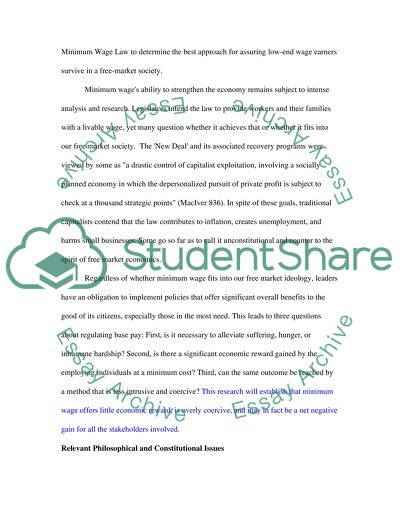Cite this document
(“Minimum Wage Law Essay Example | Topics and Well Written Essays - 3000 words”, n.d.)
Retrieved from https://studentshare.org/miscellaneous/1554324-minimum-wage-law
Retrieved from https://studentshare.org/miscellaneous/1554324-minimum-wage-law
(Minimum Wage Law Essay Example | Topics and Well Written Essays - 3000 Words)
https://studentshare.org/miscellaneous/1554324-minimum-wage-law.
https://studentshare.org/miscellaneous/1554324-minimum-wage-law.
“Minimum Wage Law Essay Example | Topics and Well Written Essays - 3000 Words”, n.d. https://studentshare.org/miscellaneous/1554324-minimum-wage-law.


